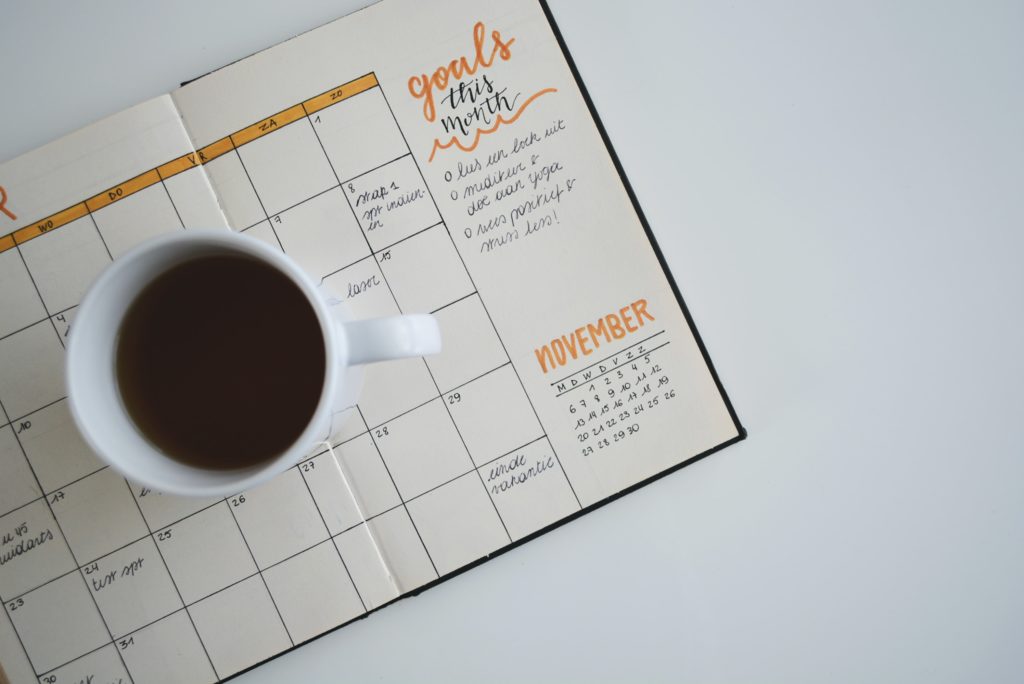Ah, New Year’s Day… the time to turn over a new leaf, hope for the future, reflect on the past… and of course, set some resolutions that we intend to keep, but probably won’t. Most people give up on their resolutions by February, even though they have the highest hopes on January 1st that they can really do it. So, what’s the reason we can’t stick to our goals?
Common resolutions
Every year, the top most common resolutions are usually something like:
- Exercise more
- Quit smoking
- Get organized
- Spend less money
- Learn a new skill
- Live life to the fullest
Sound familiar? Maybe one or more of these were going to be your resolution for 2022. These are admirable goals, and we hear stories of people achieving these things all the time. But for some reason, after a month or two, most people slowly start to notice they’ve slipped up, and eventually, they just forget about it. Maybe the problem is the goal itself.
Take “exercise more” for example. That’s a good goal, but how do you know if you’ve achieved it? What is “more?” What constitutes “exercise” to you? This goal is not specific enough. Likewise, we may all want to “live life to the fullest,” but what does that look like in reality? If we don’t have a clear picture of the goal we are setting out to achieve, we won’t know when we’re nearing our milestones. Here are some tips on making goals that you can actually stick to.

Make SMART goals
You may be thinking “hey, my goals aren’t dumb! They’re pretty smart!” In this case, “SMART” is an acronym. It stands for goals that are:
S – specific
M – measurable
A – achievable
R – relevant
T – time-based
When following the SMART system, you will create goals that are possible and are far more likely to be achieved than the previous method for resolutions.

Specific resolutions
“Learn a new skill” is a good idea, but if you ask yourself “is this goal specific?” You’ll realize that no, it’s not. Decide which new skill you want to learn. Here are some examples of goals that would be more specific:
- Take a guitar for beginners class and learn to play a song
- Learn to crochet and make a scarf
- Watch YouTube videos to learn basic ASL and have a conversation in ASL with my coworker who is hearing-impaired
These not only define what the skill is, but how you will learn the skill and what the benchmark will be for when you’ve “learned” it (playing a song, making a scarf, having a conversation in ASL).

Measurable resolutions
It’s important to have goals that you can “measure” so that you can keep track of your progress. The easiest way to make your goal measurable is by adding some number words to it. Take for example the goal to “spend less money.” Here are some measurable goals you could set instead:
- Do a monthly budget before the 1st of each month, reducing non-essential spending by $100 every month.
- Set aside 10% of every paycheck into a savings account.
- Reduce spending at coffee shops to $20 or less per week.
These are actionable steps you can take to actively spend less money, and as you go, you’ll know if you’re hitting your goals because you can measure it. You can budget a little less for spending every month, and you can achieve that by spending less at Starbucks weekly and tucking away some of your money in a savings account every paycheck. If you begin to deviate from the plan, you can measure by how much and adjust as you go so you don’t completely fall off the wagon with your overall goal of spending less.

Achievable resolutions
Get real with yourself. As you set your goals and make them more specific and measurable, keep checking in with yourself and asking “is this actually something I can do?”
Let’s say you want to exercise more, so you set a specific and measurable goal: “Run 1 mile in my neighborhood every single morning all year long.” Stop and ask yourself… how achievable is this? Sure, it’s important to dream big, but you also don’t want to set yourself up for burnout or failure. Is it realistic to run EVERY day, 365 days in a row? Probably not. What if it rains outside? What if you get sick? What if you need to be somewhere early but the alarm doesn’t go off and you’re going to be late, so you have to skip the run? Give yourself some reasonable wiggle room. Otherwise, if you keep missing the mark, you’ll eventually stop trying.
A more achievable resolution might be to “run on the treadmill or in the neighborhood 4 days of every week.” This gives you the option that if you plan to run on Tuesday but something comes up, you still have more days in your week to make it up. And you may even end up doing more than your goal, you over-achiever, you!

Relevant resolutions
This one may seem like a no-brainer, but it’s worth considering. Maybe your friend has set a resolution to use her bullet journal daily to stay organized and asks if you’ll do it with them. Being organized is important, so you say yes. But as you go on, you realize that bullet journalizing isn’t your style. You don’t like the method, and you have trouble even figuring out what to plan in the journal. It’s not something that is relevant to your lifestyle.
If you live in an apartment building without a yard, you probably shouldn’t set a goal about gardening. If you’re self-employed, you probably shouldn’t set a goal about getting the boss to give you a raise. And if bullet journaling isn’t your style, don’t force yourself to do it with your resolution. These goals aren’t relevant to you. Maybe more relevant goals would be based around moving somewhere with a yard for gardening, earning more money through gaining more clients, or finding an organization system that makes sense for your life.

Time-based resolutions
When it comes to setting new year’s resolutions, most people set them with no time frame in mind. Because they have no end date or duration, the goal can easily become daunting like there is no light at the end of the tunnel. Therefore, time needs to be a factor in all goals to help you stick to them.
As you set your time-based goal, remember to keep it achievable and relevant! Is it realistic to resolve to quit smoking in 3 days or lose 25 pounds in a month? Check-in with yourself honestly in order to set goals that will help you progress. If your goal is not time-based in a way that is realistic, it may seem too lofty, and you may never try to begin with.
Time-based resolutions could be:
- Take a weekly guitar for beginners class and learn to play a song after 3 months.
- Reduce spending at Starbucks to $20 or less per week for 6 months.
- Stretch to touch my toes daily during the first month, stretch my legs while I brush my teeth daily during the second month, etc.

No matter what objectives you want to set for yourself in the new year, make sure that they are SMART to set yourself up for success. Break up your biggest resolutions into tiny, specific goals you can complete throughout the year to achieve your big-picture dream, and your friends will be impressed, asking you how you did it.
What are some of your main goals for 2022? How can you make them specific, measurable, achievable, relevant, and time-based?
Want to get more content like this delivered directly to your inbox?
Of course, you do!
Enter your email address below to stay in the know.
Contributor, designer & admin for JohnHart Gazette.

